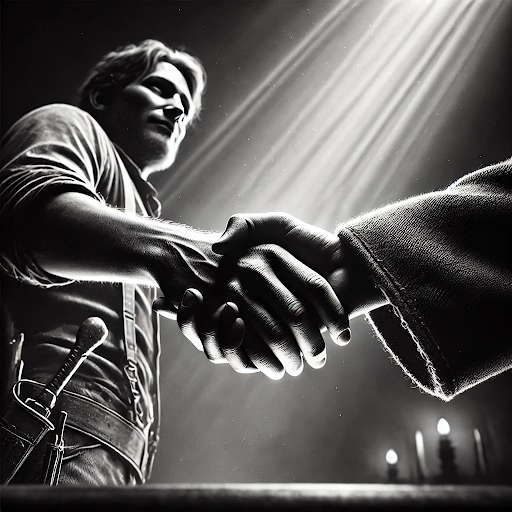
At Issue: An American economist was giving a talk when a Swiss man in the audience raised a complaint: government regulations were driving entrepreneurs out of Switzerland. The lament felt familiar—a staple grievance in debates about business and governance. But it raises an important question: what makes a true entrepreneur? Are they lazy opportunists whining for better conditions, or trailblazers who overcome all odds to succeed?
A true entrepreneur always finds a way to make money. History proves this. In the 1950s, when the U.S. effective tax rate was over 90%, entrepreneurs still created the most successful enterprises in the world and the strongest national economy in the world. After the Triangle Shirtwaist Factory fire in 1911, regulations poured in to protect workers, yet business owners didn’t quit—they adapted, finding new ways to innovate and make profits. Entrepreneurs didn’t emerge because of favorable tax breaks or low capital gains; they thrived because they solve problems, fix inefficiencies, and profit from their solutions.
Risk and Reward: A Progressive System
Ask an entrepreneur who made their first million—they’ll tell you it was the hardest money they ever earned. Scaling from $1 million to $5 million is still tough. But getting from $5 million to $20 million? That gets easier. Why? Because success buys access: to top accountants, lawyers, marketers, and financiers. At this level, wealth multiplies more through capital than effort.
This is why progressive taxation exists. Once you hit certain thresholds, your ability to grow wealth accelerates exponentially. It’s not just about effort anymore; it’s about resources. This also explains the logic behind capital gains taxes. The government incentivizes risk-taking by offering lower tax rates on investments. If you put $500,000 into a business, you might pay less tax on your profits if it succeeds.
But here’s where things get complicated—and inequitable. Someone like Mitt Romney might pool $1 million from several investors and manage their fund. As compensation, he takes a cut of the fund’s profits, which is taxed as capital gains rather than income. This means Romney pays less tax than a salaried worker, even though he risked none of his own money. Even if two of Romney’s five funds fail, he can offset those losses to lower his taxes on the three that succeed.
Is this fair? Firefighters, teachers, and nurses don’t get to claim “losses” on their livelihoods. They don’t have access to these financial mechanisms. Yet they pay taxes that fund the infrastructure entrepreneurs depend on: roads, schools, and public safety.
The False Narrative of Self-Made Success
This dynamic leads to dangerous rhetoric. My brother, an entrepreneur, once asked my girlfriend what she did for a living. When she replied that she was a teacher, he smirked and said, “You’re the ground I walk on.” It wasn’t just a cheeky remark. It was a worldview: that entrepreneurs create wealth, and everyone else is a parasite.
This idea isn’t new. Calvin Coolidge famously said, “The business of America is business.” That mindset drove unfettered capitalism and, eventually, the Great Depression. Today, we don’t live in a libertarian utopia where business operates without government. No society ever has. The government always sets the rules—good or bad—because without regulation, the system collapses.
True entrepreneurs understand this. They don’t spend their time complaining about taxes or regulations. They adapt. They solve problems. They build. If entrepreneurs leave Switzerland because of regulations, that’s their choice. But it doesn’t make them pioneers; it makes them opportunists looking for easier terrain.
The real reward of entrepreneurship isn’t just material wealth. It’s starting from nothing, incubating a great idea, and turning it into something transformative. The yachts, mansions, and luxury cars? Those are just a loud way of saying, “Look what I built!”
Entrepreneurs Don’t Do It Alone
What’s troubling is how often successful entrepreneurs dismiss the public systems that enabled their success. Public schools create literate workers. Roads and infrastructure move goods. Emergency services protect businesses. Entrepreneurs benefit from all these systems yet act as though their success happened in a vacuum.
As President Obama once said, “You didn’t build that.” It’s not to downplay entrepreneurial grit or vision but to acknowledge reality: success is a team effort. Teachers, nurses, firefighters, and others play a critical role in the foundation of prosperity.
Entrepreneurs aren’t moochers. But neither are the workers, taxpayers, and public servants who keep the system running. True entrepreneurialism isn’t about marginalizing these contributions. It’s about building something amazing—and recognizing the shoulders you stood on to get there.

Leave a Reply